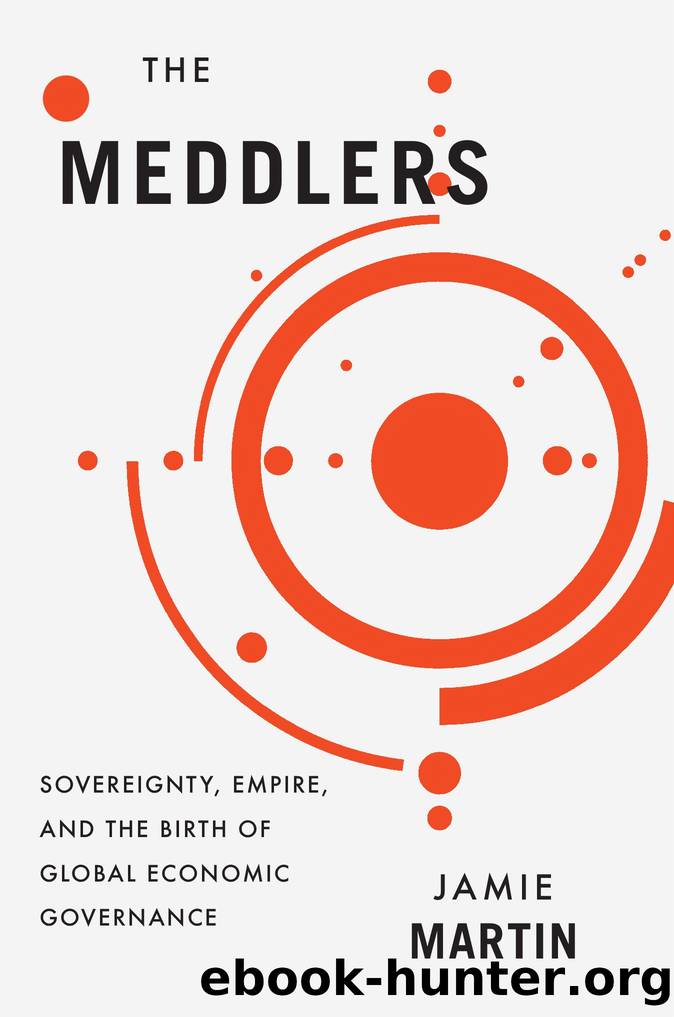The Meddlers by Jamie Martin

Author:Jamie Martin
Language: eng
Format: epub
Publisher: Harvard University Press
Although unsuccessful, the Pahang Consolidated lawsuit showed the strength of opposition among some British firms to the expansion of the colonial governmentâs economic powers, which the international agreement had facilitated. British capitalists benefited from Malayaâs administrative fragmentation and from a regime of limited government intervention in the Malayan economy, which was generally restricted to the setting of property rights and regulations to their advantage.62 This made some of these firms willing to support the legal paramountcy of Malayan rulers over the colonial regime, at least in this case. The head of Pahang Consolidated claimed the Privy Councilâs ruling against it was a sign that the British government was wading into dangerous waters. On what grounds, he wrote, could Whitehall complain about violations of British property at the hands of foreign governments if a colonial government was allowed to abrogate contracts at whim? âWe stand to the Sultan of Pahang and the FMS Government ⦠in exactly the same position as the Anglo-Persian Oil Co. stands to the Persian Government.â He used a metaphor he knew would strike a nerve: London was then preparing to lodge a formal complaint about Reza Shahâs revocation of Anglo-Persianâs oil concession at the League of Nations. âI should think the position is unique,â he continued, âthe breakers of a contract [the British government] are appealing against another nation for using the same privilegeânamely, autocratic power to over-ride contractual obligations.â63 The foreign secretary recognized the power of the analogy and the urgency of preventing Persian League delegates from using the precedent of Pahang Consolidated to justify the Shahâs seizure of British property.64
Other critics similarly built a case against the restriction act, and its apparent violation of contracts and property rights, in terms later used to oppose the nationalization of natural resources: Foreign investors would flee, they claimed, if property rights were not guaranteed against government violation.65 The charge was prescient, though not in ways these critics fully anticipated. In both Malaya and Bolivia, the enforcement of the tin restriction act set into motion the growth of government powers over the industry. In Bolivia, this laid the foundations for the nationalization of the industry two decades later, including, in an ironic twist of fate, the vast properties of Patiño himself.66 What was so extraordinary about this expansion of government powers during the Depression, however, was its political organization: It was demanded by an international institution for the sake of a price stabilization project with global implications.
Download
This site does not store any files on its server. We only index and link to content provided by other sites. Please contact the content providers to delete copyright contents if any and email us, we'll remove relevant links or contents immediately.
Harry Potter and the Goblet Of Fire by J.K. Rowling(3027)
Never by Ken Follett(2873)
Shadow of Night by Deborah Harkness(2710)
Ogilvy on Advertising by David Ogilvy(2678)
Zero to IPO: Over $1 Trillion of Actionable Advice from the World's Most Successful Entrepreneurs by Frederic Kerrest(2377)
The Man Who Died Twice by Richard Osman(2291)
Machine Learning at Scale with H2O by Gregory Keys | David Whiting(2269)
Book of Life by Deborah Harkness(2259)
How Proust Can Change Your Life by Alain De Botton(2256)
My Brilliant Friend by Elena Ferrante(2219)
0041152001443424520 .pdf by Unknown(2214)
The Tipping Point by Malcolm Gladwell(2202)
How to Pay Zero Taxes, 2018 by Jeff A. Schnepper(2095)
Will by Will Smith(2033)
Purple Hibiscus by Chimamanda Ngozi Adichie(1979)
Hooked: A Dark, Contemporary Romance (Never After Series) by Emily McIntire(1935)
Borders by unknow(1780)
Rationality by Steven Pinker(1761)
Daughter of Smoke and Bone by Laini Taylor(1739)
